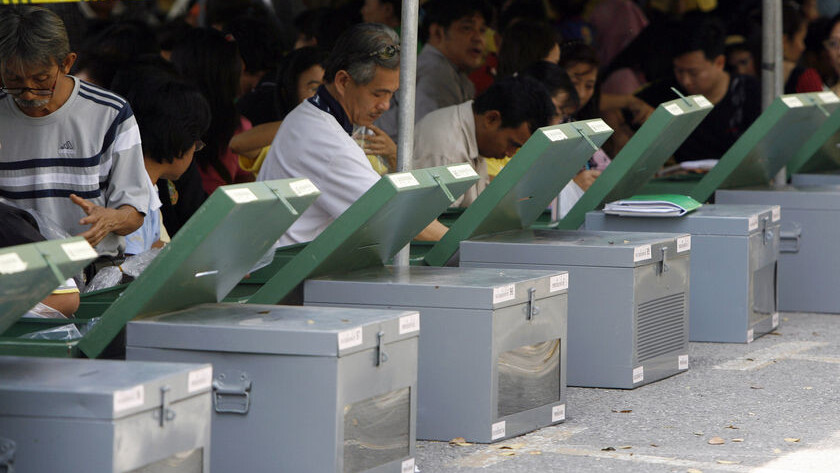
With the 2011 Thai General Election fast approaching, the nation is gearing up to embrace what could herald a new chapter for the country, and revitalize its democracy after more than 5 years of political crisis.
But news has emerged that Thais could face a stint in jail and a hefty fine if they’re caught commenting on any of the candidates or the parties on Twitter – or any other digital channel – in the build up to the election.
Polling stations are open from 8am until 3pm (local time) on Sunday 3rd July, but the blanket ban is in place from 6pm on Saturday until midnight on Sunday, with 100 police officers in place to check that the ban is adhered to. Anyone caught breaking the ban face up to six months in prison and a 10,000 baht ($330) fine.
Suthiphon Thaveechaiyagarn, Secretary-General of the Election Commission, said:
“Any candidates and their supporters will face jail time if they are caught campaigning on social media websites on the evening before the July 3 election.”
But the ban extends beyond Twitter and social networks into the wider digital media sphere too, with texts and forwarding emails also apparently prohibited.
Police spokesman, Prawut Thavornsiri, said:
“There will be a unit of more than 100 officers to monitor this. If we can track the origin of (an online message) right away, we will block the site and make an arrest. But if the sites are registered overseas and we can’t check the origin, we’ll first block it and ask the IP (Internet Protocol) providers for further investigation.”
Some have suggested that the ban could potentially be used to disqualify winning candidates if it’s found that someone has been aided by online campaigning during the blackout period.
Twitter in particular has proven to be a popular tool for social and political campaigning, as it allows users to share and access news and information in real-time as events happen. And it also affords users anonymity letting them express opinions and divulge sensitive information without the fear of being reprimanded.
It will be difficult to see exactly how the law could be effectively enforced in a country with almost 70m people, almost 20m of which are online with 8m using Facebook alone.
Get the TNW newsletter
Get the most important tech news in your inbox each week.





